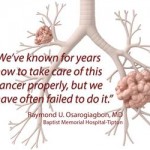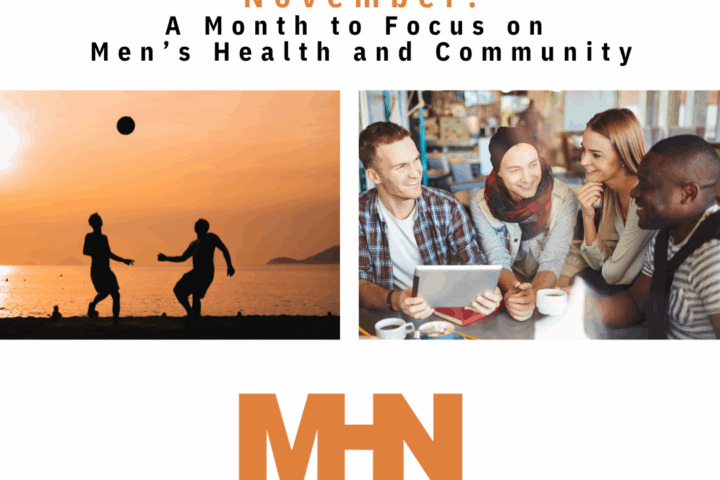 During November, Lung Cancer Awareness Month, I’d like to share with you an example of how patient and caregiver engagement in clinical research can contribute to improving our knowledge of how best to care for patients with lung cancer.
During November, Lung Cancer Awareness Month, I’d like to share with you an example of how patient and caregiver engagement in clinical research can contribute to improving our knowledge of how best to care for patients with lung cancer.
This example starts with the story of Mark Ill, a 68-year-old former owner of an air freight company. In 2008, Mark was diagnosed with lung cancer that had spread to his brain and adrenal gland. He and his sister Toni, his primary caregiver throughout his treatment, struggled to cobble together a care plan involving multiple specialists, including a pulmonologist, a neurosurgeon, oncologists, and radiologists.
It was difficult. Mark’s doctors didn’t consult with one another, even when complications arose. In fact, his initial oncologist became angry and dismissed Mark as his patient after Mark underwent surgery without letting him know. Mark had wrongly assumed the surgeon and oncologist were in touch.
Mark survived his cancer and today, he and Toni are advising a PCORI-funded research project that aims to optimize healthcare delivery for lung cancer patients and survivors.
Mark sees serving on the research team as a responsibility. “As a survivor, I hope to help find solutions to avoid the frustration, confusion, and fear I encountered during diagnosis, treatment, and recovery,” he says.
A Challenging Disease
Lung cancer kills about 160,000 Americans each year. Only 20 percent of patients survive five years after a lung cancer diagnosis.
Part of the problem is that lung cancer requires many specialists and specialized equipment to treat, particularly if the cancer has spread to other parts of the body. And many people diagnosed with lung cancer have numerous other health problems.
Several professional societies have recommended that lung cancer be treated by specialists who work together as a team. But 85 percent of lung cancer care is currently delivered in a serial fashion, in which patients receive a sequence of referrals to see specialists working independently of each other, as Mark did. Even in the handful of major US cancer specialty centers that can deliver multidisciplinary care, it isn’t standardized or, in most cases, backed by evidence.
The PCORI-funded project, led by lung cancer specialist Raymond Osarogiagbon, MD, is evaluating the outcomes patients experience from multidisciplinary lung cancer care compared to the outcomes associated with serial care. The program is housed at Baptist Memorial Hospital Memphis, a community hospital that serves a diverse population.
“We want to be active at the very front end in deciding what does this patient need, who has the skill set to attend to that need, and how can we match each patient to the right doctor to do the right tests and provide the treatments that will get the best outcome,” Dr. Osarogiagbon says. He suspects that what the team learns about lung cancer care can be extrapolated to other complicated healthcare delivery problems.
The Value of One-Stop Shopping
The research team started by getting input on what should go into a multidisciplinary care program from stakeholders such as patients and family caregivers like the Ills as well as clinicians in specialties that manage lung cancer and executives from hospitals and insurance companies.
The study will compare patient-centered outcomes — including survival, patients’ satisfaction, the appropriateness of the care, and quality of life – among 150 patients in the multidisciplinary program to those of 300 patients who receive conventional serial care delivered by specialists working independently of one another.
Patients and caregivers contribute to each phase of the study. “We wanted to learn from them instead of coming in with preconceived notions,” Dr. Osarogiagbon says. The project’s community advisory board meets monthly and a patient or a family caregiver co-chairs each of several task forces related to different aspects of the program.
As advisors, Mark and Toni Ill have pushed for better communication and inclusion of mental health professionals in the specialty mix. Following the Ills’ suggestion, the research team brought a psychologist into the program. “A positive attitude throughout [treatment] is key, and I take any opportunity I get to bring that up,” Mark says.
The study’s results are expected in mid-2017.



